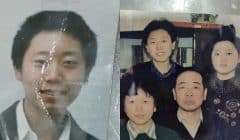Misleading the Masses

You’d be forgiven for wondering how any of this could happen in a democratic country. After all, many of the ethnic Chinese living abroad came, presumably, to enjoy the freedoms absent in Mainland China. So why, after all that time living abroad, do they seem so oblivious to democratic mores, human rights, and the rule of law?
Part of the answer lies in the Chinese-language media, which Chinese immigrants remain heavily dependent on. Surveys find that a substantial majority of Chinese-Americans – many of them first-generation immigrants – use Chinese as their primary language at home. Many even have difficulties with some basic English. As a result, large portions of the Chinese diaspora overseas learn about Western institutions, values, and current events from Chinese-language sources.
Up until the late 1980s, Chinese newspapers servicing the overseas Chinese communities were predominantly run out of Hong Kong or Taiwan, nationalities that also made up the overwhelming majority of the overseas Chinese population.
But by the mid-80s, and all the more in the wake of the 1989 massacre in Tiananmen Square, that had begun to shift. Mainland Chinese had emigrated to the West in record numbers, yet Beijing wasn’t about to let their loyalties slip.
One by one, Chinese-language media in the United States and elsewhere overseas were overtaken by media run with the support, funding, and editorial content of the Mainland Communist government. And just as if they were still in China, Chinese expatriates were having their worldviews shaped by such state-run sources as Xinhua news agency – described by Reporters Without Borders as “the world’s largest propaganda agency.”
By 2001, a report by the Washington D.C.-based think-tank the Jamestown Foundation found that three of the four largest Chinese newspapers in the United States were run under the influence of Beijing. The fourth was quickly succumbing.
The report outlines four methods that characterize the Party’s attempts at influencing Chinese-language media in the United States. One is to establish direct control over media entities through complete ownership, as is the case with the China Press, founded just seven months after the Tiananmen Square Massacre of 1989.
The second is to leverage the Mainland government’s economic ties to media organizations with business in China. At risk of losing important markets or sources in the Mainland, these media organizations practice what amounts to self-censorship, withholding content unfavorable to Beijing.
The third method is the purchasing by the Party of broadcast time or column inches from otherwise independent media organizations, or by providing free, ready-to-use editorial content, already screened by Beijing’s censors.
The fourth method is to deploy government agents to work directly in the media organizations, influencing it from within.
Since the Jamestown Foundation report was published in 2001, another method of influence has appeared, one necessitated by the sudden emergence of a Chinese dissident newspaper with international circulation. That is, intimidation.
The newspaper, The Epoch Times, was established in 2000 as a Chinese-language weekly. It now distributes daily in many overseas markets and boasts English and other language editions. It began predominantly with a view to covering human rights abuses in China, particularly those committed against Falun Gong.
Though market demand quickly saw it grow to a general-interest paper, the paper has remained highly critical of China’s Communist government. It was, for example, the first newspaper to report on the outbreak and cover-up of SARS in China in 2002, while most Party-loyal media were still assuring foreign travelers it was safe to visit the country.
But the newspaper’s most brazen defiance of the regime came in 2004, when it published a book-length editorial series documenting the history of China’s Communist Party. That series, of which tens of millions of copies has been printed, inspired a grassroots movement in China whereby people have publicly renounced all prior affiliations to the party. Over 37 million such renunciations have been published to date.
But The Epoch Times and its sister television station New Tang Dynasty (NTDTV) have paid a price for their independence.
Consular officials have threatened the companies’ advertisers to cancel their contracts. In the case of NTDTV, the regime has pressured satellite carries not to host the network’s signal, Reporters Without Borders has said.
In Canada, a document leaked from the Chinese embassy detailed efforts to keep NTDTV off the cable line-up. The country’s largest cable company, Rogers, has opted to launch nine state-run Chinese networks while so far passing up NTDTV. That’s despite Canada’s television watchdog having ruled that content aired on one of the state-run networks could incite hatred, or even violence, against Falun Gong.
It goes on. Both NTDTV and Epoch Times offices have been hit by vandals; staffers have received pre-recorded threatening phone calls and had their tires slashed; and both media have received forbidding packages filled with white powder, some bearing Communist party slogans and/or deriding Falun Gong.
After The Epoch Times broke a story in 2005 quoting the former wife of a Chinese surgeon who said the Communist regime had been killing detained Falun Gong practitioners for their organs, seven Epoch Times offices worldwide were broken into over a span of just seven weeks.
In Mainland China, the success of campaign against Falun Gong—just as was the case in Nazi Germany, Rwanda and elsewhere—has depended on the regime’s ability to portray adherents as an “other,” both contemptible and threatening, and thus undeserving of sympathy.
This is accomplished through the state-run media, which has portrayed Falun Gong practitioners as “anti-China,” “evil,” or sub-human, sometimes referring to them as “rats,” or worse.
In many circles in Mainland China, the media offensive against Falun Gong has worked, turning ordinary citizens into willing informants and collaborators, and rendering police officers, teachers, medical professionals and others ready to assist in the state’s repression.










